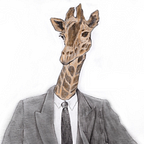The Land Of Rising Dust
An Igby Prize for Nonfiction winning essay on the small miracles of Nsukka city by Ama Udofa
Nsukka forces you to learn the language of dust. How it mocks you while you’re polishing your shoes early in the morning before you step out. When you buy new shoes, make sure you listen to languages rocks speak too–they are laughing at your white soled sneakers when they crackle against your feet, especially if you live in Odenigwe or Hilltop. Your jeans trousers aren’t left out either, they have to learn how to fold during the rains.
Nsukka’s weather suffers from bipolar disorder: In the morning you will wonder if you missed Noah’s ark. In the night, you are confused whether there is an oven the devil forgot to turn off under the earth so it bakes the city. You will also have to learn the language cold speaks. How it laughs at you when someone steals your sweater. How it is a shapeshifter, seducing and cooing you to sleep by nine PM, then barking you awake by midnight. You will learn to pay obeisance to sweaters and blankets, and make thick woolen socks your gods.
When you wake up, the smell of okpa di oku¹ will greet you “ibolachi²” before it crumbles between your teeth and scalds your tongue–pain and pleasure, much like the city itself.
If you walk out the campus gates, you will see Nsukka for what it truly is: an eagle with clipped wings that has forgotten how to fly (but don not tell an indigene this. If you do, you are on your own). The roads to Ogige Market make you think of antique tools–expensive, but of little use–when you watch vehicles weave this way and that in trying to avoid potholes that double as deathtraps. The roads here will also teach you a different kind of caution–I once saw a boy the size of a ten-year old but with the demeanour of a middle aged man. His face looked no better than the road and he cradled a small bowl while playing on the emotions of commuters. I caught his clandestine grin after each successful pickpocketing adventure.
Ogige Market has the smell of badly prepared soup. The ambiance is a cocktail of colours and odours. The woman in front of you sells rotting tomatoes, and you do not know where the rank smell of “Okrika³” clothes is coming from. There are women hawking okpa⁴, others moin-moin⁵, zobo⁶, egg-rolls, or locally processed soymilk. Further down the road are a group of unkempt men in worn out ill-fitting jackets yelling Staphylococcus aerus and syphillis and diabetes, while also proffering herbal solutions in an incoherent mix of Central and Nsukka dialects of Igbo. The small market is cramped with narrow walkways that intersect each other like a maze. It is easy to miss your way here. You will discover the traders’ greed wrapped underneath layers upon layers and façades of honesty. But if you are patient enough you might also uncover their vulnerabilities when they really need to sell.
If you stay here long enough, you will learn the dirges of weakness and the upbeat of triumphs. This city is like a cube. It has several faces–from when you discover wounds take longer to heal during harmattan, to the high you get from tasting the beans sauce and roast plantain served at Abuja Building inside the university campus. Or the abacha that swirls in your mouth such as the one you can get at the incomplete building at the Social Sciences Faculty comically named “Shoprite” by students (I swear I’m not being paid to advertise them). You will learn also, of how birds with clipped wings and small dreams survive–for Nsukka is one of them. You will learn open hearted beauty and pared down allure, both without any illusions or grandiose of self.
When you leave this city, dust follows you in memories. A different kind of dust this time though. Not the type with particles that settle for your shoes, but the one that only chooses to keep rising from the ground.
1. Okpa di oku: Hot okpa.
2. Ibolachi: “Good Morning” in Igbo.
3. Okrika: Imported used clothes.
4. Okpa: A staple local meal made from bambara beans.
5. Moin-moin: Steamed bean pudding.
6. Zobo: A local drink produced from Rosella leaves (Hibiscus sabdariffa).
Ama Udofa is a firm believer that words are more valuable than the computers on which they are typed. His story “Hai One” was long listed for the 2017 Writivism Short Story Prize. He was also long listed for “Run” in the maiden Okike Prize for Literature. A recipient of the 2017 Flips and Flops short story prize, maybe he should have been a badass writer by now but a badass combination of laziness, procrastination, and equally badass village people are not allowing him be great. You can follow him on Twitter @writivisionmag.
